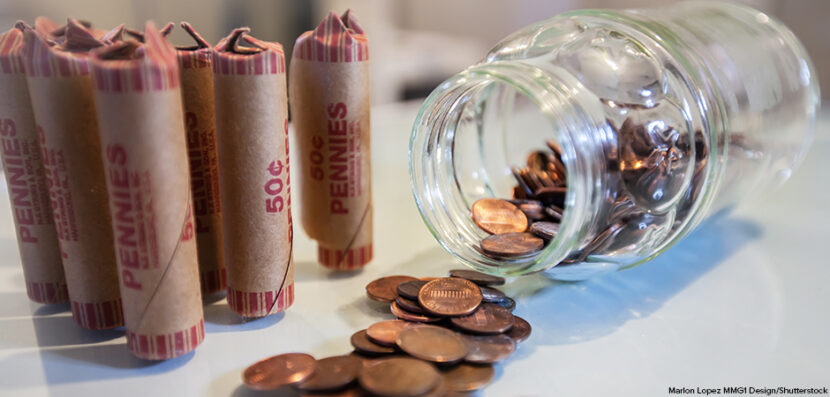
A Big “Change”: No More Pennies!
In February 2025, President Trump announced that he was ordering the secretary of the U.S. Treasury to stop producing new pennies. While the president doesn’t have this authority (the U.S. Mint, which produces currency, is overseen by Congress), Trump’s order nevertheless spurred on national conversation. Should the Treasury keep producing the penny. (The btw site asked readers to weigh in with their opinions; you can see responses and provide your own vote here.)
Now, the decision is official. The U.S. Treasury has confirmed that beginning in early 2026, it will no longer mint new pennies. Election Central takes a closer look at what this will mean for U.S. consumers, and answers some of your common questions about the “change.”
Why Get Rid of the Penny?
The Trump administration is not the first to discuss stopping production of the penny, The idea has been circulating for decades. The problem is that pennies cost too much money to produce–nearly four cents each! According to the federal government, it is a waste of money to pay four cents to produce just one cent’s worth of currency. In fact, eliminating the penny will immediately save the United States about $56 million per year.
So Are Pennies Worth a Lot Now?
Just because pennies won’t be made anymore doesn’t mean they’re suddenly worth a lot of money. There are simply too many of them. Most American households have about $60 to $90 in unused coins sitting in their house right now. If you have a piggy bank full of pennies at home, it’s unlikely that they are worth more than their face value (unless you have one that’s rare or really old).
But don’t worry–you can still spend them! The Treasury Department will stop producing new pennies. The billions of pennies that are currently in circulation are still considered legal tender and are perfectly usable.
Will This Just Make Everything Cost More?
Some economists have expressed concern about a “rounding tax”–the idea that eliminating the penny will end up costing American consumers more because purchases will now be rounded up to the nearest dollar. That is a possibility, but it’s also possible that consumers will save money if stores choose to round down.
And since fewer than one out of five payments are made with cash anyway, it’s unlikely there will be much impact on the consumer either way. (A 2022 survey found that two-fifths of American consumers never use cash at all!) However, it is worth noting that lower-income households and older Americans still rely on cash to make purchases and therefore might face a greater impact.
Won’t the Treasury Just Have to Make More Nickels Instead?
It’s probably true that without pennies in circulation, the Treasury will have to make more nickels to keep up with increasing demand. This could potentially be even more costly than pennies were, since each nickel costs about fourteen cents to make. But Treasury Secretary Scott Bessent has said that he thinks the Treasury can break even on nickel production if they change how the coins are produced.
Currently, nickels are made of copper and nickel metals mixed together. But if the metals were layered instead, with nickel/copper on the outside and copper in the middle (like a sandwich), they would cost less to make. The dime, for example, is layered this way and only costs about 5.2 cents to produce.
So, What Should I Do With My Pennies?
Economists say that the smartest thing to do with your pennies right now is to cash them in. The average jar of pennies sitting around in people’s homes is actually worth about $58!


